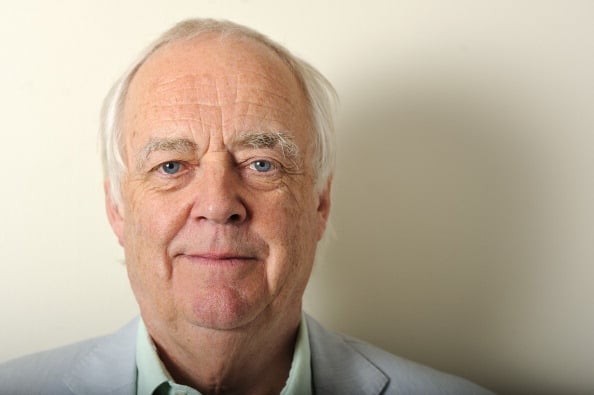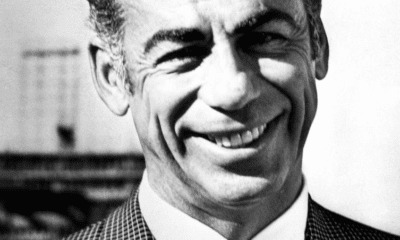What is Time Rice’s Net Worth?
Tim Rice is an English songwriter who has a net worth of $250 million. Tim Rice is best known for his musical theater collaborations with composer Andrew Lloyd Webber. Together, the two created the hit stage musicals “Jesus Christ Superstar,” “Joseph and the Amazing Technicolor Dreamcoat,” and “Evita.” Among his other works, Rice wrote the songs for the Disney animated films “Aladdin” and “The Lion King,” winning Academy Awards for both. He was knighted by Queen Elizabeth in 1994 and has also been inducted into the Songwriters Hall of Fame.
Wealth Comparison to Andrew Lloyd Weber
Andrew Lloyd Webber and Tim Rice are both legendary figures in musical theatre, but their net worths differ dramatically—approximately $1.2 billion for Lloyd Webber versus $250 million for Rice. This gap is largely due to the way each structured their career and monetized their talents.
Lloyd Webber is not only a composer but also a savvy entrepreneur. In 1977, he founded the Really Useful Group (RUG), giving him ownership and control over his musicals. Through RUG and his LW Theatres company, he owns a portfolio of London theaters and produces many of his own shows, earning revenue from ticket sales, licensing, touring productions, and merchandise. He’s also maintained ownership of his music publishing rights, ensuring long-term income from cast recordings, covers, and global performances. Major hits like The Phantom of the Opera and Cats run for decades worldwide, creating continuous income streams. Additionally, his investments in fine art and real estate (including a castle-like estate and West End theaters) significantly contribute to his billionaire status.
Tim Rice, by contrast, focused more on his role as a lyricist. While he co-created massive hits with Lloyd Webber (Jesus Christ Superstar, Evita), and later with Disney (The Lion King, Aladdin), Rice generally didn’t serve as a producer or retain large ownership stakes. Instead, he earned royalties from his lyrics, soundtrack sales, and publishing rights—but not from theatrical operations or production profits. He’s worked across many successful projects but hasn’t built an empire around them.
Ultimately, Lloyd Webber’s wealth comes from combining creativity with business: he owns, produces, and profits from every aspect of his musicals. Rice, though incredibly successful, earns more traditionally as a writer. That entrepreneurial edge explains why Lloyd Webber’s net worth is roughly five times greater than Rice’s, despite their similar creative pedigree.
Early Life and Education
Sir Tim Rice was born on November 10, 1944 in Shardeloes, a famed 18th-century country house in Buckinghamshire, England that was used as a maternity hospital during World War II. His father, Hugh, served in the Eighth Army during the war, while his mother, Joan, served as a photographic interpreter in the Women’s Auxiliary Air Force. Growing up, Rice was educated at three independent schools: Aldwickbury School, St. Albans School, and Lancing College. After spending some time as an articled clerk in a London law firm, he attended the Sorbonne in Paris for a year.
Career Beginnings
Rice began his career in the music industry at EMI Records, where he worked as a management trainee from 1966 to 1968. After that, he became an assistant producer for record producer Norrie Paramor, who had left EMI to establish his own company.
Musical Theater
Rice rose to fame for his musical theater collaborations with composer Andrew Lloyd Webber. The two had their first big hit with “Jesus Christ Superstar,” which was released as a concept album in 1970 before debuting on Broadway in 1971 and on the West End in 1972. Rice and Webber followed that with “Joseph and the Amazing Technicolor Dreamcoat,” which had a number of amateur productions before it made its debut on the West End in 1973. Next came “Evita,” a concept album released in 1976 that became a West End show in 1978. The show won the Laurence Olivier Award for Best Musical, and following its transfer to Broadway in 1979 won the Tony Award for Best Musical. Rice and Webber also won the Tony for Best Original Score, while Rice won for Best Book of a Musical. The pair later wrote the short musical “Cricket,” commissioned for the 60th birthday of Queen Elizabeth II and first performed at Windsor Castle in 1986. Much later, in 2005, they finally saw the staging of their musical “The Likes of Us,” which they had originally written in 1965. Rice and Webber went on to contribute some songs to the 2011 West End adaptation of “The Wizard of Oz.”
Getty Images
Rice’s first musical without Webber was the rock opera “Blondel,” which had music by Stephen Oliver. The show debuted on the West End in 1983. Rice went on to collaborate with ABBA members Björn Ulvaeus and Benny Andersson on “Chess,” which debuted on the West End in 1986 and on Broadway in 1988 after starting out as a concept album. In the 1990s, Rice had a big hit with the Broadway adaptation of Disney’s “Beauty and the Beast,” on which he collaborated with the movie’s composer-songwriter duo Alan Menken and Howard Ashman. He later collaborated with Menken on the 1997 oratorio “King David” and the 2011 stage adaptation of Disney’s “Aladdin.” Rice also collaborated twice with Elton John, first on the 1997 stage adaptation of Disney’s “The Lion King” and then on the 1998 stage adaptation of the opera “Aida.” For their music in the latter, Rice and John won Tony and Grammy Awards. Rice’s other musical theater works include “Heathcliff,” with music by John Farrar and book by Cliff Richard and Frank Dunlop; and the 2013 adaptation of “From Here to Eternity,” with music by Stuart Brayson and book by Bill Oakes.
Films
In film, Rice is best known for his songs in the Disney animated films “Aladdin” and “The Lion King.” He won Academy Awards for Best Original Song for both films, for “A Whole New World” in the former and “Can You Feel the Love Tonight” in the latter. Rice co-wrote the songs for “The Lion King” with Elton John. The pair collaborated again on the 2000 DreamWorks animated film “The Road to El Dorado.” Among his other film credits, Rice co-wrote the song “Christmas Dream” with Andrew Lloyd Webber for the 1974 film “The Odessa File,” and co-wrote the song “All Time High” with John Barry for the 1983 James Bond film “Octopussy.”
Rice has also written songs for various albums. With Andrew Lloyd Webber, he wrote the song “It’s Easy for You” for Elvis Presley’s final studio album, “Moody Blue.” In the 1980s, Rice wrote songs for Elaine Paige’s self-titled album, Elton John’s album “Jump Up!,” David Essex’s album “The Whisper,” and Freddie Mercury’s album “Barcelona.”
On the radio, Rice has been a frequent guest on the panel game shows “Just a Minute” and “Trivia Test Match,” and is the host of the weekly series “Tim Rice’s American Pie.” Earlier in his career, on television, he co-hosted the chat show “Friday Night, Saturday Morning.” In other media, Rice has a podcast called “Get Onto My Cloud.”
Business Ventures
With his brother Jo, as well as radio presenters Paul Gambaccini and Mike Read, Rice helped create the Guinness Book of British Hit Singles. He was also an editor of the book from 1977 to 1996. Meanwhile, in 1981, Rice partnered with Michael Parkinson and Colin Webb to found the publishing house Pavilion Books. Continuing with his interest in literature, Rice served as the president of the London Library from 2017 to 2022. Elsewhere in the city, he is a patron of the drama school Associated Studios.
Personal Life
In 1974, Rice married Jane Artereta. The marriage fell apart in the late 1980s amid Rice’s affair with singer Elaine Paige, but the couple never officially divorced. They have a daughter named Eva who writes novels and sings, and a son named Donald who directs films and produces plays. Rice also has a daughter named Zoe from his relationship with Nell Sully, and another daughter named Charlotte from his relationship with Laura-Jane Foley.









